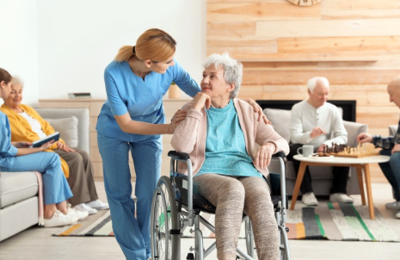
Nursing homes in New York are expected to provide safety, dignity, and proper care to elderly residents. Unfortunately, when standards fall short, residents may face serious issues—including neglect, mistreatment, or even physical abuse. These situations can lead to emotional distress, worsening health, or irreversible harm, making awareness and prompt action critically important for families and caregivers.
Families tend to miss early signs because such abuse happens behind closed doors. Understaffing, overworked caregivers, or poor supervision allow issues like elder mistreatment to spiral out of control. Attorney Sean M. Duffy of Duffy & Duffy, PLLC can provide help on how you can get a hold of the situation well ahead of time.
If you suspectnursing home abuse but do not know how to report it, the following steps can help you out.
Recognize the Signs of Abuse
Red flags at nursing homes are not always obvious. A change in behavior, withdrawal, fearfulness, or unexplained silence from your family member may signal emotional trauma.
Physical symptoms include bruises, bedsores, weight loss, or poor hygiene. These are usually not addressed unless one speaks up or investigates further when visiting.
In addition, the behavior of staff members should be observed. Lack of interest, evasiveness when questioned, or conflicting tales of what happened can indicate a more serious issue behind closed doors.
Collect Evidence
It is important to back up allegations of elder abuse in nursing homes with evidence. Ideally, start with detailed notes, including dates, times, names of staff members involved, and physical or behavioral changes you observe.
Photos can be compelling evidence as well. If your loved one is bruised, their room is unclean, or you notice visible signs of neglect like bedsores or soiled clothing, take clear photos discreetly.
Wherever possible, speak with other residents or families who might have witnessed the same issues. Similar reports from different sources strengthen the case and show a pattern rather than an isolated event.
Speak with the Management
Once you have enough evidence, call the facility's administrator or director of nursing. If they agree to meet you, describe what you saw and provide specific examples without making direct accusations.
A professional's response would involve a willingness to investigate, document your problems, and move towards a solution. It is ideal to request written confirmation that your complaint has been registered.
You need to document each meeting, phone call, or message that takes place with management. If they become defensive or drag their feet, that lack of action can be additional justification for bringing in outside assistance. At this time, you may look report the case.
Report to Adult Protective Services (APS)
If management does nothing or the abuse does not stop, report to APS in New York. You can call directly or report online through the Human Resources Administration's website.
Details matter, so report what you have observed, offer your proof, and provide staff names involved if you know them. You do not have to prove abuse. Just show reasonable concern based on facts.
Once you report, APS will investigate by talking to the resident, staff, and possibly family. Based on their findings, this can lead to corrective actions or referrals to law enforcement as appropriate.
Contact Law Enforcement as Necessary
There are a few things that go beyond civil complaints and enter into the criminal sphere. Physical abuse, sexual abuse, or intentional harm may necessitate police intervention.
Emergencies necessitate an immediate response. Officers can write official reports, collect on-site evidence, and open a formal investigation that nursing home personnel cannot delay or deflect.
You are perfectly within your rights to demand legal accountability if someone's safety is at risk. Law enforcement works in conjunction with agencies like APS, but has more authority to act swiftly and stop further harm while other reviews are performed behind the scenes.
Seek Legal Advice
Reporting abuse is only one action. To protect your loved one's rights and hold a facility responsible, legal advice can clarify what to do next.
Attorneys specializing in elder law or nursing home abuse know state laws and long-term care regulations. These lawyers can evaluate the information you have gathered and advise whether civil action is indicated.
Legal teams can assist you in submitting claims for damages, obtaining medical records, and deposing key witnesses in big situations requiring litigation. Numerous law firms provide free consultations, so there is no downside to reaching out to them early.
Elder abuse in nursing homes should never be ignored. If you suspect something’s wrong, trust your instincts and take action. Reporting protects your loved one and others in the facility. Timely steps, strong evidence, and legal support can make all the difference.




(0) comments
We welcome your comments
Log In
Post a comment as Guest
Keep it Clean. Please avoid obscene, vulgar, lewd, racist or sexually-oriented language.
PLEASE TURN OFF YOUR CAPS LOCK.
Don't Threaten. Threats of harming another person will not be tolerated.
Be Truthful. Don't knowingly lie about anyone or anything.
Be Nice. No racism, sexism or any sort of -ism that is degrading to another person.
Be Proactive. Use the 'Report' link on each comment to let us know of abusive posts.
Share with Us. We'd love to hear eyewitness accounts, the history behind an article.